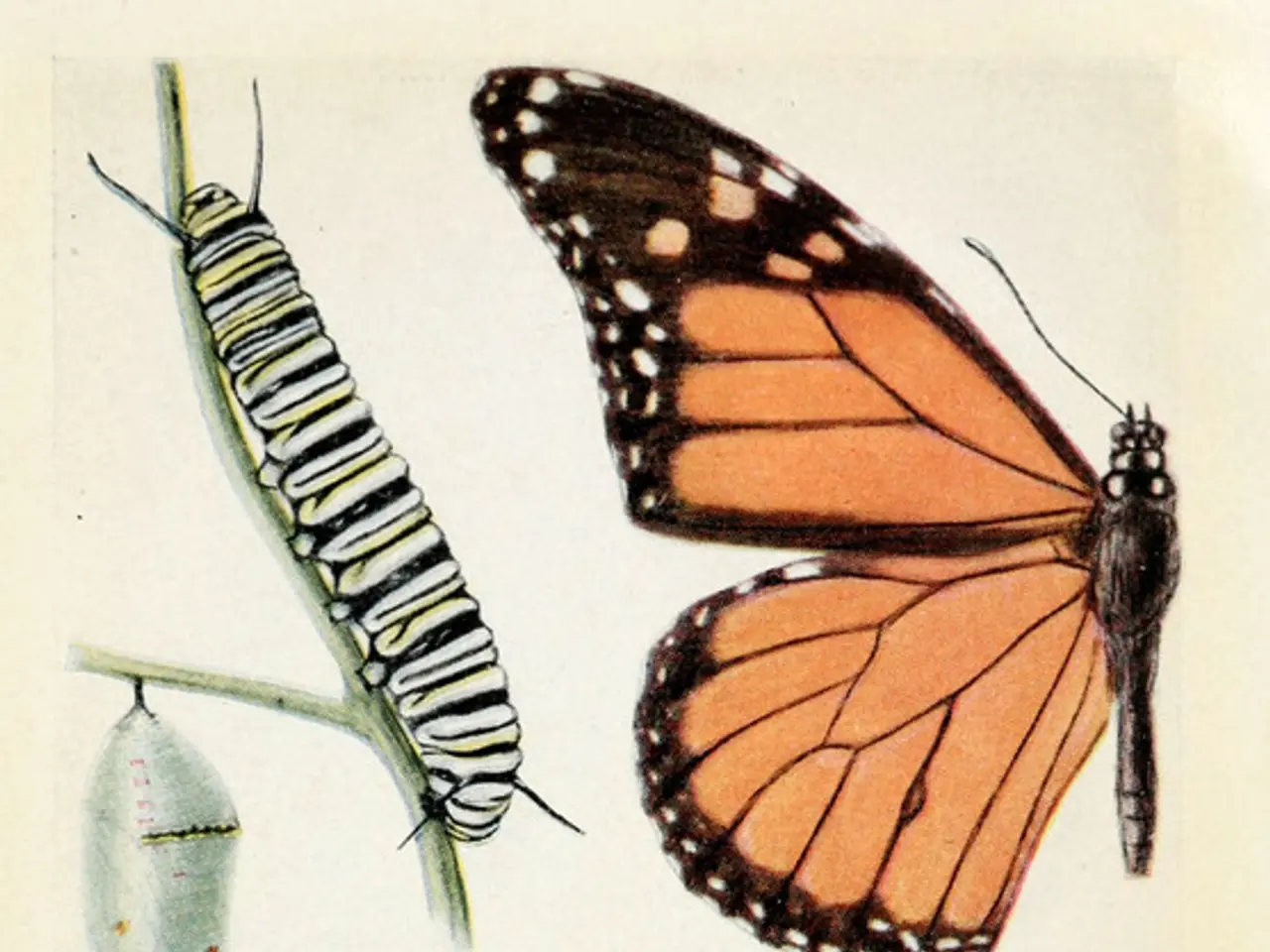Overcoming Human Extinction Risks: The Influence of Exaggerated Self-Assurance
=====================================================================
In the complex and rapidly changing world we live in, the impact of overconfidence bias on human survival cannot be overlooked. This cognitive process, characterized by excessive certainty in one's abilities or judgments, can lead individuals to make poor decisions that have far-reaching consequences in various aspects of life.
Overconfidence manifests in several ways, including overestimation, overplacement, and overprecision. Overestimation is the belief that one is more skilled or knowledgeable than is actually the case. Overprecision, on the other hand, exhibits unwarranted certainty in the accuracy of one's judgments.
One of the most evident consequences of overconfidence bias is its effect on decision-making in critical areas such as finance, entrepreneurship, politics, and even personal health. For instance, investors might trade too frequently, reducing their returns due to overconfidence in their market timing skills. Similarly, entrepreneurs may launch businesses without conducting proper market research due to inflated confidence in their ideas, often leading to startup failures.
Political leaders may exhibit overconfidence in their understanding of complex geopolitical issues, leading to misguided policies that endanger national security or international relations. In the realm of public health, overconfidence in personal health choices can lead individuals to ignore medical advice or preventive measures, increasing vulnerability to diseases.
However, understanding and addressing overconfidence bias can enhance decision-making capabilities and improve outcomes. Here are some strategies to mitigate its impact:
- Awareness and Education: Understanding the different forms of overconfidence and how it operates can help individuals recognize when they might be biased.
- Seeking Feedback: Actively soliciting and thoughtfully considering feedback can counteract excessive self-belief and provide reality checks.
- Adopting a Growth Mindset: Emphasizing learning and skill development rather than fixed ability can reduce resistance to acknowledging mistakes and foster more accurate self-assessment.
- Use of Statistical and Probabilistic Thinking: Encouraging decisions based on data and probabilities rather than intuition or unwarranted certainty can reduce overprecision.
- Implementing Decision Protocols: Structured decision-making processes that require justification and consideration of alternative perspectives can help temper overconfident judgments.
In contemporary society, overconfidence bias can lead to detrimental outcomes in medical decisions, financial markets, entrepreneurial ventures, and even in the arena of geopolitics. However, deliberate strategies focused on self-awareness, learning, feedback, and disciplined decision processes serve as effective mitigations.
It's essential to remember that the survival of the human species is influenced by environmental challenges, social dynamics, and cognitive processes. By understanding and addressing cognitive biases like overconfidence, we can make more informed decisions, improve our outcomes, and contribute to a safer and more sustainable future for all.
References:
[1] Kruger, J., & Dunning, D. (1999). Unskilled and unaware of it: How difficulties in recognizing one's own incompetence lead to inflated self-assessments. Journal of Personality and Social Psychology, 77(6), 1121-1134.
[2] Gilovich, T., & Ross, L. (2002). The illusion of rationality: Cognitive biases in reasoning. Wiley.
[3] Heath, R. L., & Tversky, A. (1991). The psychology of liberal and conservative judgments. The Journal of Politics, 53(4), 1045-1075.
[4] Tetlock, P. E. (2005). Expert political judgment: How good is it? How can we know? Princeton University Press.
- In the realm of health and wellness, overconfidence can lead individuals to ignore expert advice or neglect preventive measures, potentially putting their mental and physical health at risk.
- Climate change presents significant challenges, and an overconfident approach to predicting its impact or designing solutions could lead to poor decision-making in environmental science.
- Overconfidence can also impair the educational process, hindering self-development and personal growth by preventing individuals from accepting feedback, learning from their mistakes, or considering alternative perspectives.
- Acknowledging the role of overconfidence bias in various aspects of life, from science and finance to mental health and the environment, is a crucial step in promoting sustainable survival and fostering a better understanding of our world.




